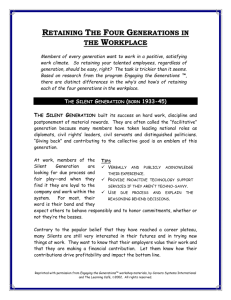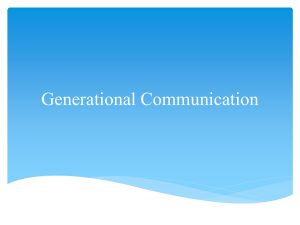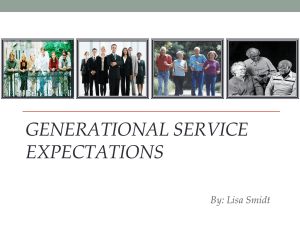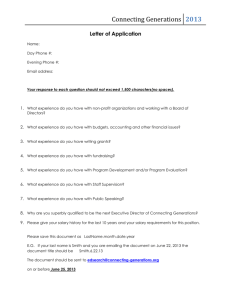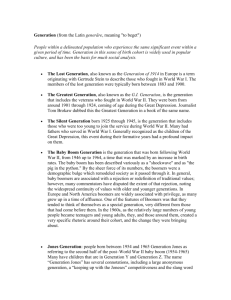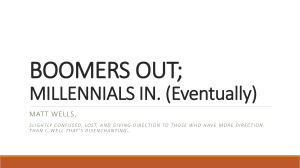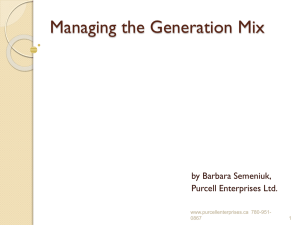Generation Next Changes the Face of the Workplace In a report on
advertisement
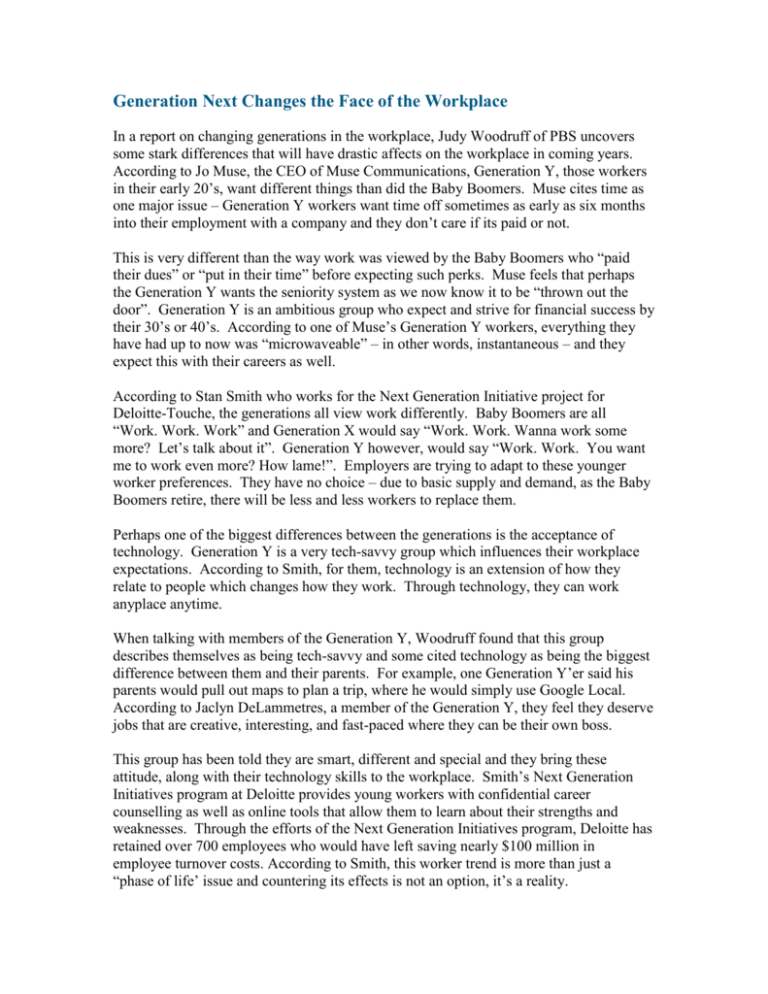
Generation Next Changes the Face of the Workplace In a report on changing generations in the workplace, Judy Woodruff of PBS uncovers some stark differences that will have drastic affects on the workplace in coming years. According to Jo Muse, the CEO of Muse Communications, Generation Y, those workers in their early 20’s, want different things than did the Baby Boomers. Muse cites time as one major issue – Generation Y workers want time off sometimes as early as six months into their employment with a company and they don’t care if its paid or not. This is very different than the way work was viewed by the Baby Boomers who “paid their dues” or “put in their time” before expecting such perks. Muse feels that perhaps the Generation Y wants the seniority system as we now know it to be “thrown out the door”. Generation Y is an ambitious group who expect and strive for financial success by their 30’s or 40’s. According to one of Muse’s Generation Y workers, everything they have had up to now was “microwaveable” – in other words, instantaneous – and they expect this with their careers as well. According to Stan Smith who works for the Next Generation Initiative project for Deloitte-Touche, the generations all view work differently. Baby Boomers are all “Work. Work. Work” and Generation X would say “Work. Work. Wanna work some more? Let’s talk about it”. Generation Y however, would say “Work. Work. You want me to work even more? How lame!”. Employers are trying to adapt to these younger worker preferences. They have no choice – due to basic supply and demand, as the Baby Boomers retire, there will be less and less workers to replace them. Perhaps one of the biggest differences between the generations is the acceptance of technology. Generation Y is a very tech-savvy group which influences their workplace expectations. According to Smith, for them, technology is an extension of how they relate to people which changes how they work. Through technology, they can work anyplace anytime. When talking with members of the Generation Y, Woodruff found that this group describes themselves as being tech-savvy and some cited technology as being the biggest difference between them and their parents. For example, one Generation Y’er said his parents would pull out maps to plan a trip, where he would simply use Google Local. According to Jaclyn DeLammetres, a member of the Generation Y, they feel they deserve jobs that are creative, interesting, and fast-paced where they can be their own boss. This group has been told they are smart, different and special and they bring these attitude, along with their technology skills to the workplace. Smith’s Next Generation Initiatives program at Deloitte provides young workers with confidential career counselling as well as online tools that allow them to learn about their strengths and weaknesses. Through the efforts of the Next Generation Initiatives program, Deloitte has retained over 700 employees who would have left saving nearly $100 million in employee turnover costs. According to Smith, this worker trend is more than just a “phase of life’ issue and countering its effects is not an option, it’s a reality. Questions for Discussion 1. Why is addressing this issue so important? Shouldn’t workers adjust to meet the needs of their employers? 2. What can employers who can’t afford such extensive programs as the Deloitte organization do to address the changing preferences of their younger workers? What would you like to see your employer or prospective employer do to address your wants and needs to retain you?

